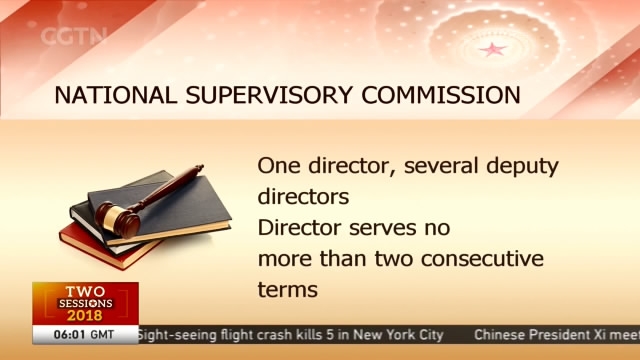
16:05, 13-Mar-2018
China's Political Season: National Supervisory Commission to be established

Supervisory commissions have been established in every county, city and province of China. They incorporate existing supervisory and anti-corruption agencies. Their three major duties are: supervision, investigation and punishment. The new system expands the scope of inspection to ensure that all civil servants who exercise public power are subject to supervision. Let's take a quick look now at plans for the new National Supervisory Commission.
Like the existing administrative, judicial and prosecution agencies of the State, the new national Supervision Commission will be responsible to and supervised by the National People's Congress. The commission will have one director and several deputy directors. The director can serve no more than two consecutive terms. The commission should exercise its power of supervision independently without interference by any administrative agency, public organization or individual. In January 2017, China started a pilot program for the new supervision system in Beijing, and Shanxi and Zhejiang provinces. The number of people covered by the system rose from 210,000 to 997,000 in Beijing, from 785,000 to 1.3 million in Shanxi, and from 383,000 to 701,000 in Zhejiang.
Since the end of October, supervision commissions have been set up by people's congresses at the provincial, city and county levels across the country.

SITEMAP
Copyright © 2018 CGTN. Beijing ICP prepared NO.16065310-3
Copyright © 2018 CGTN. Beijing ICP prepared NO.16065310-3